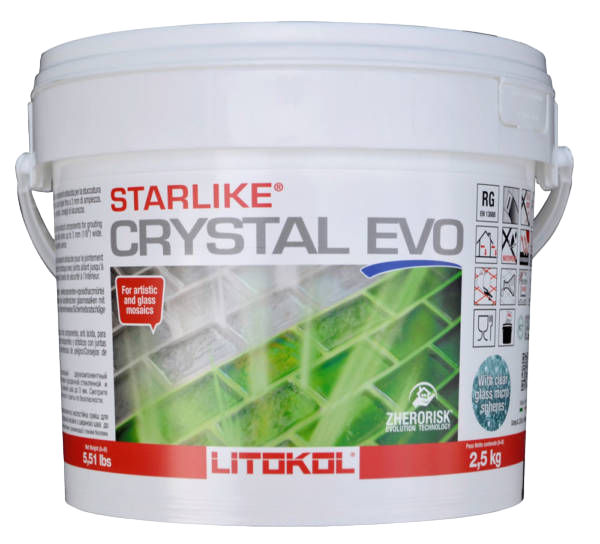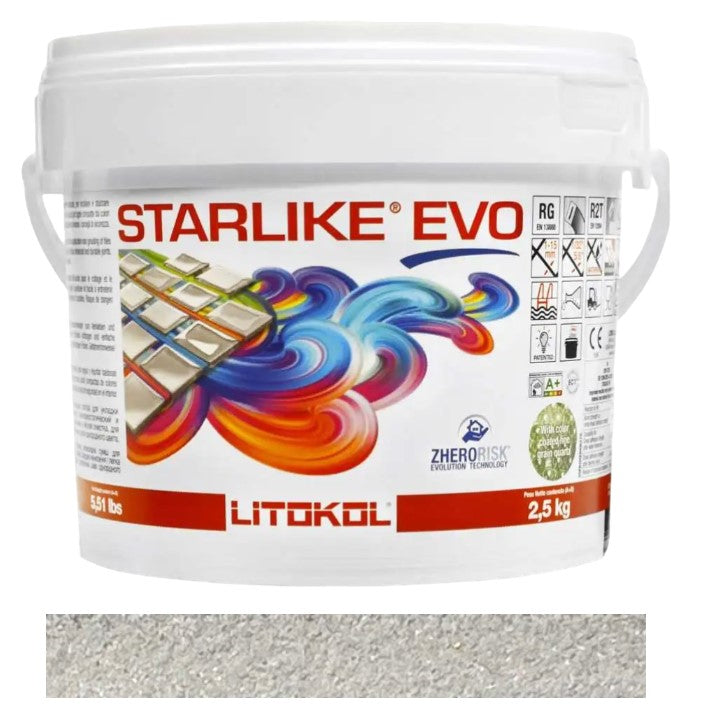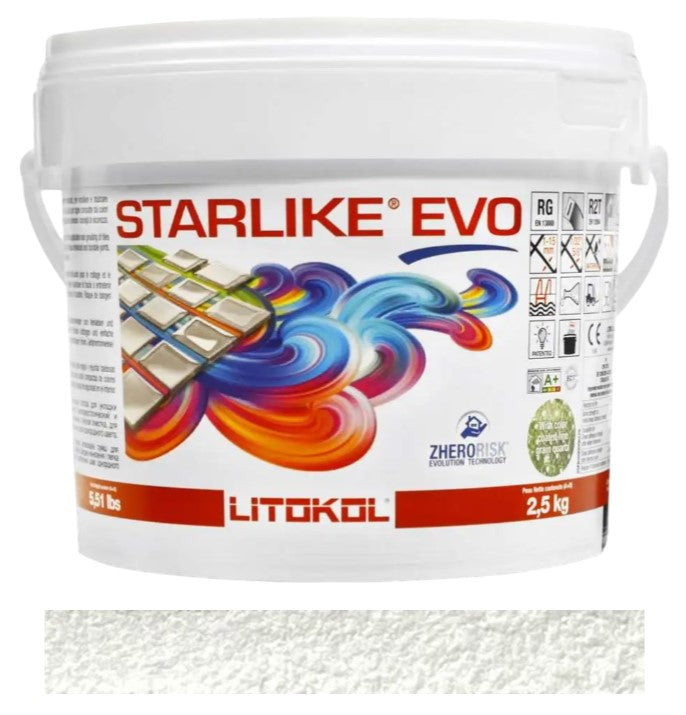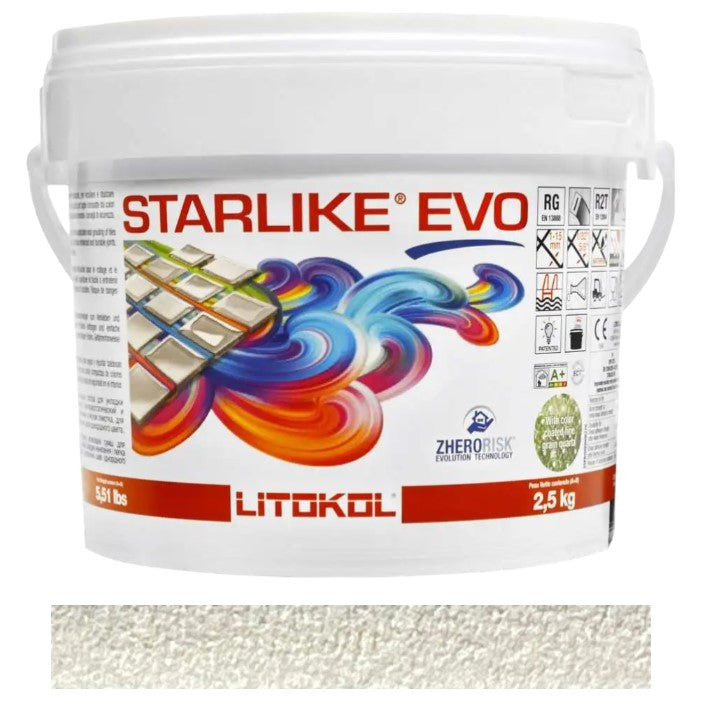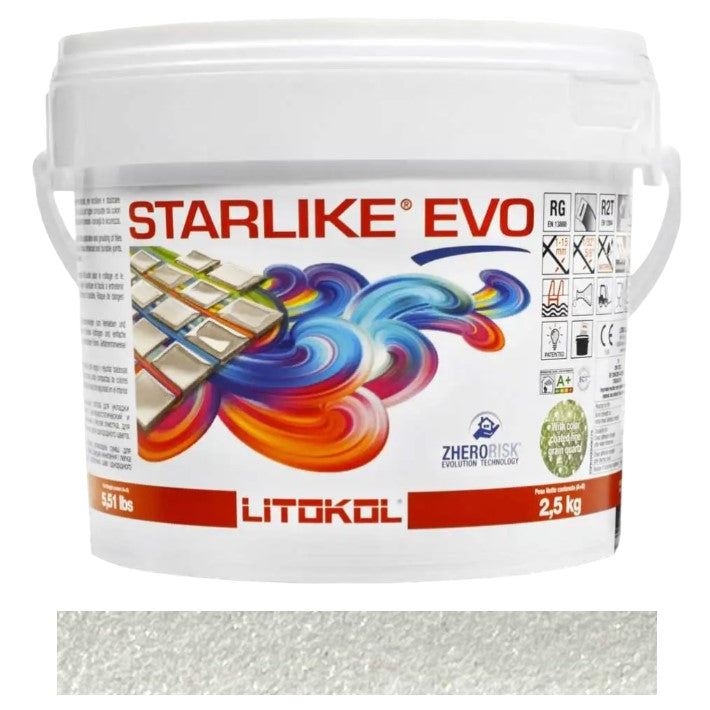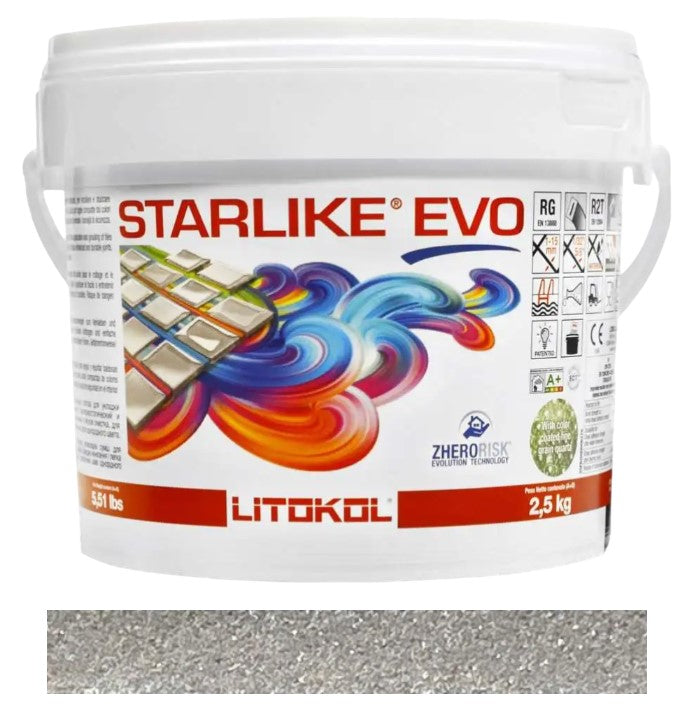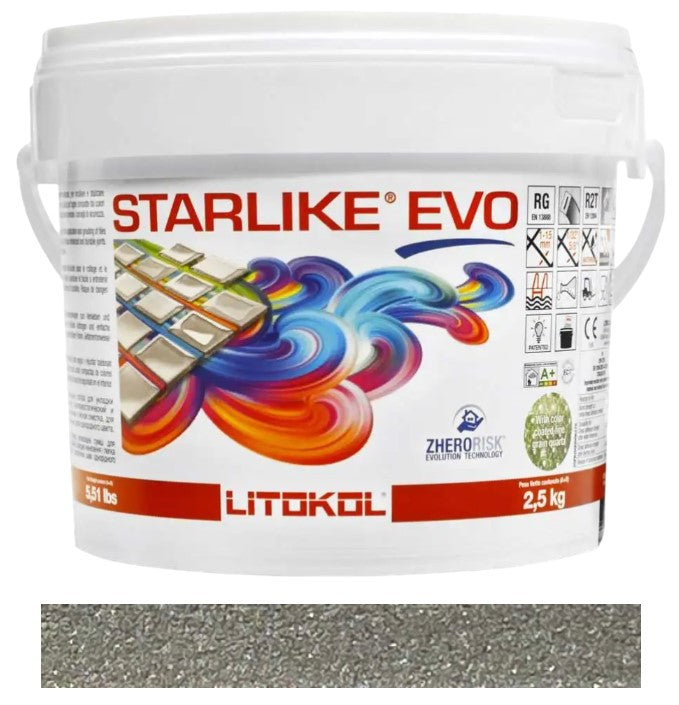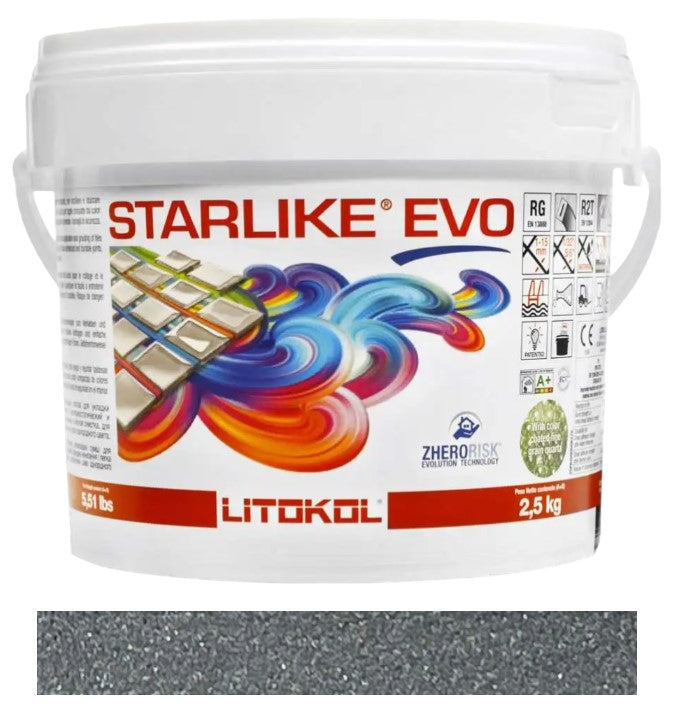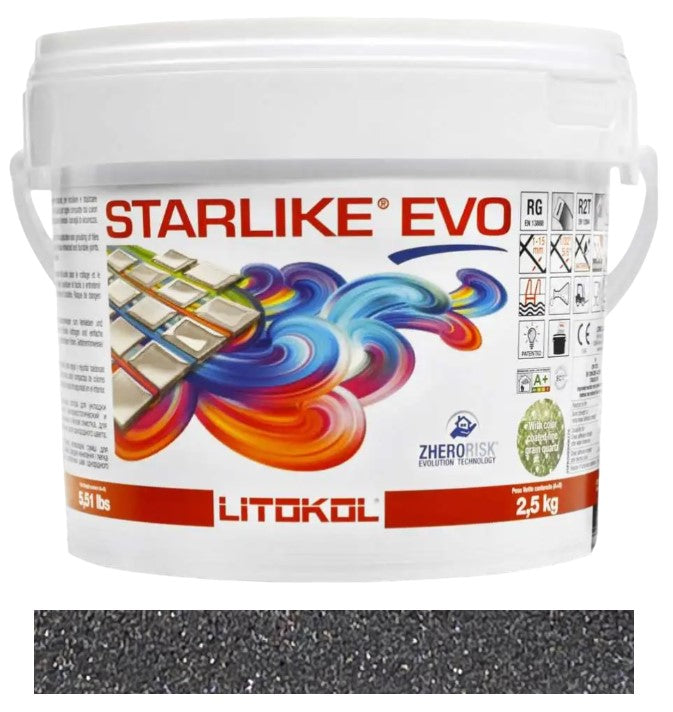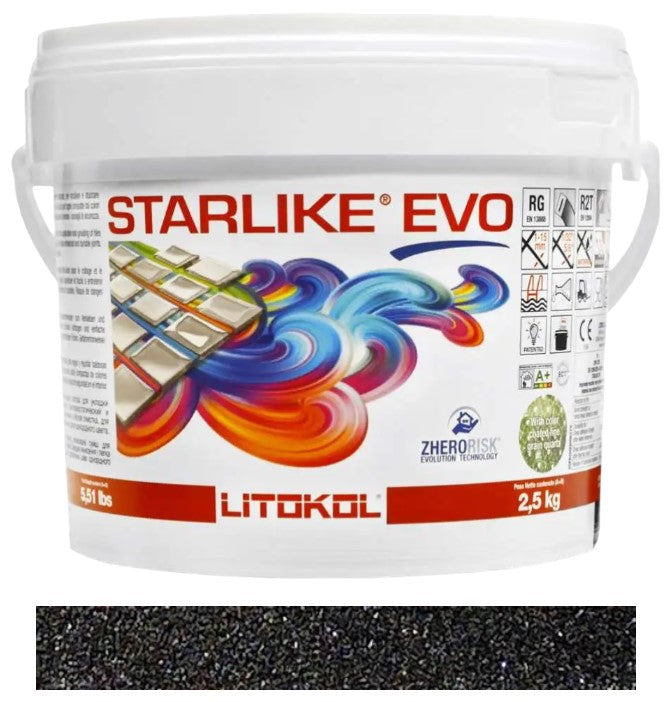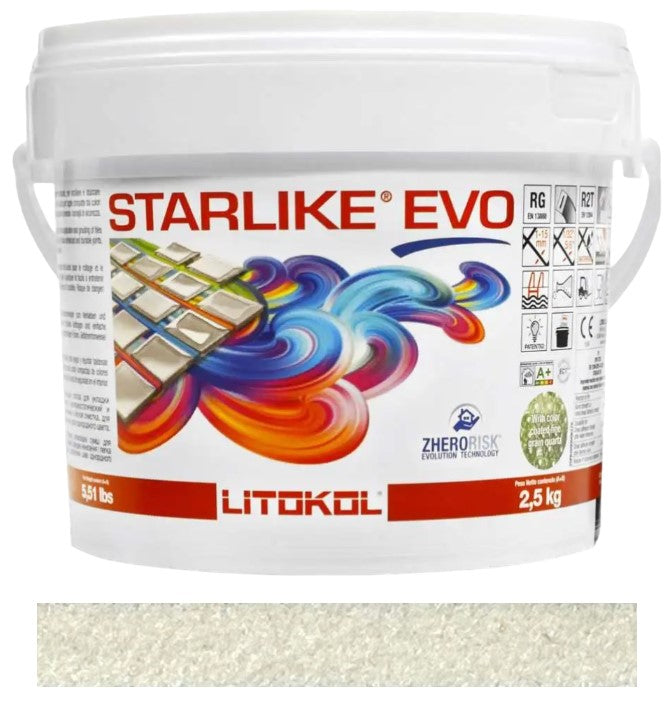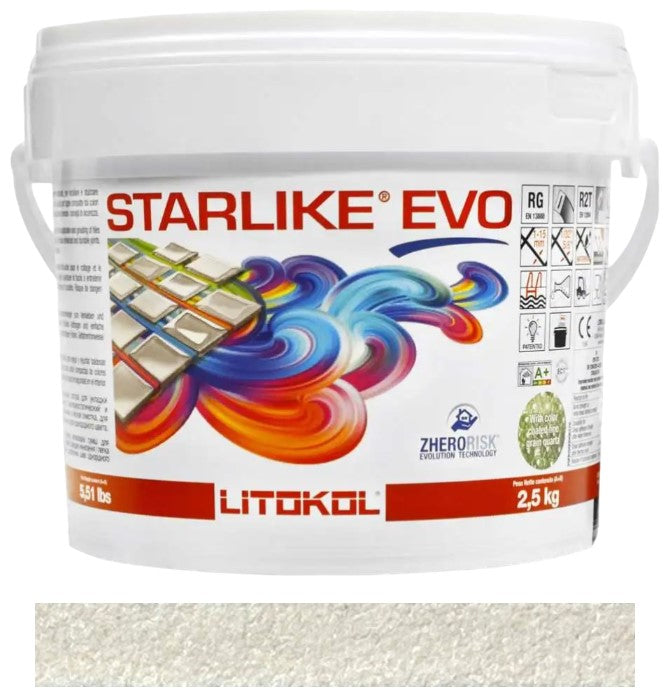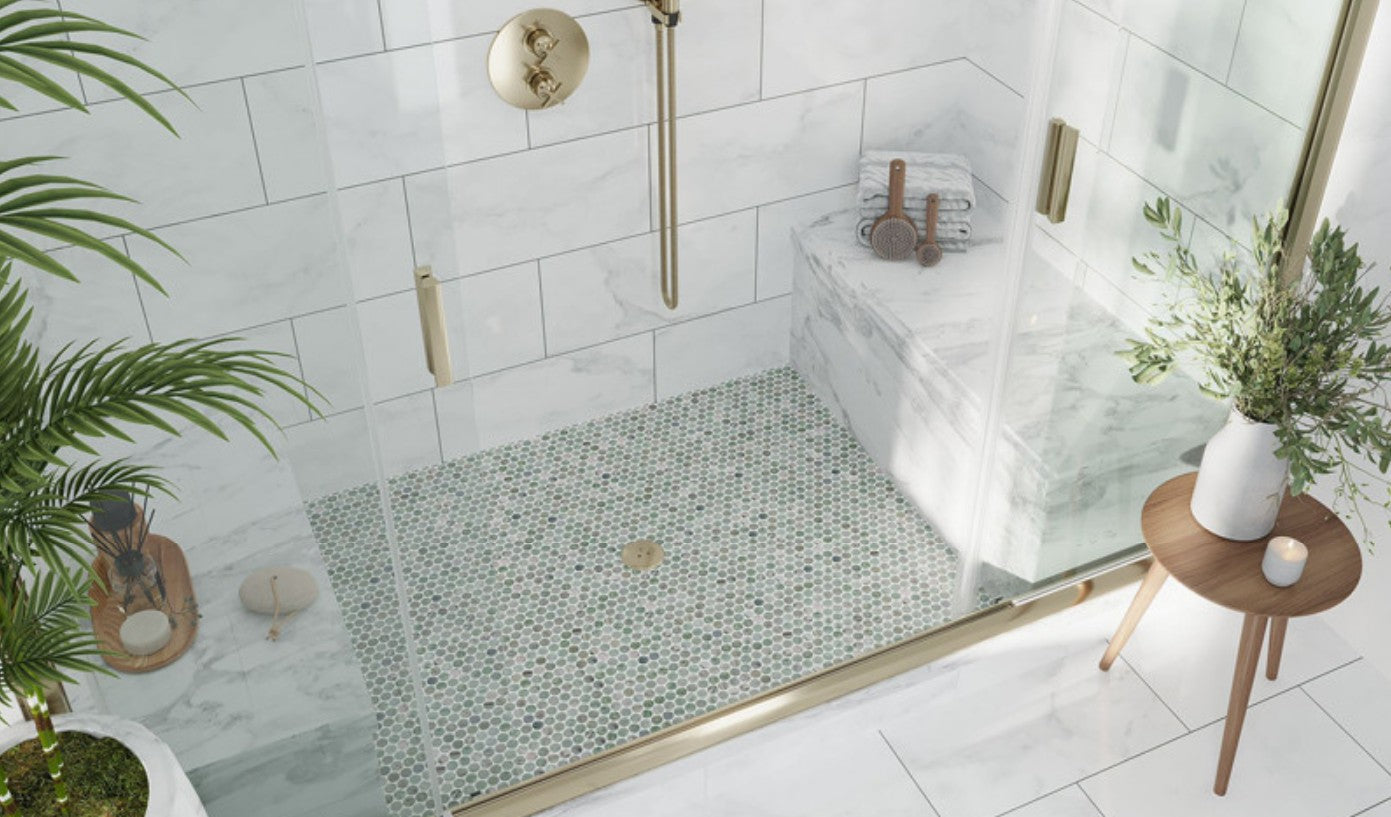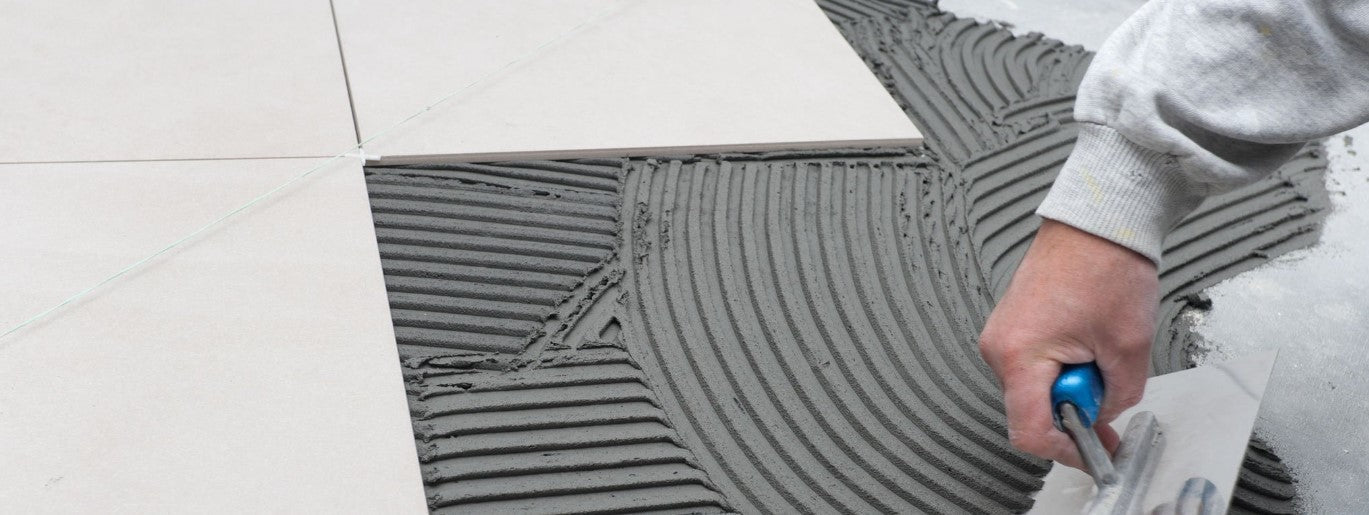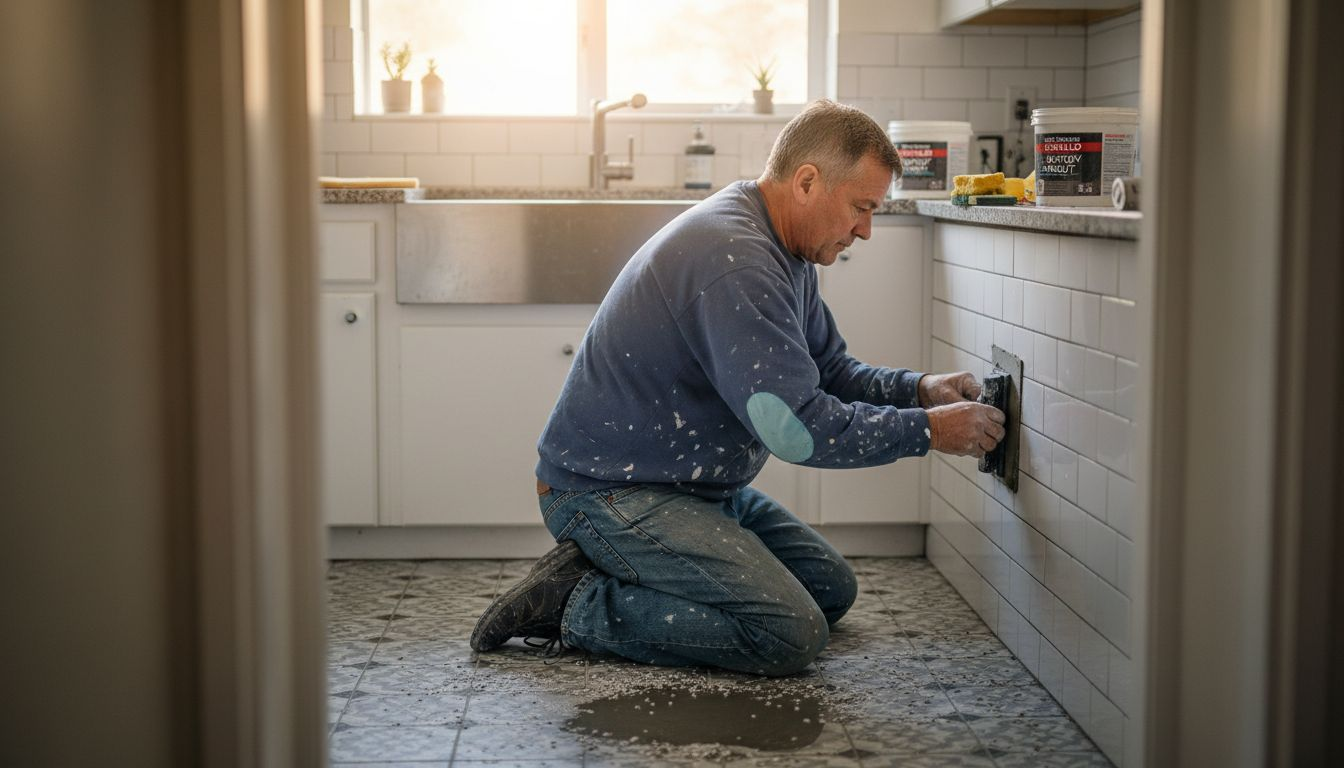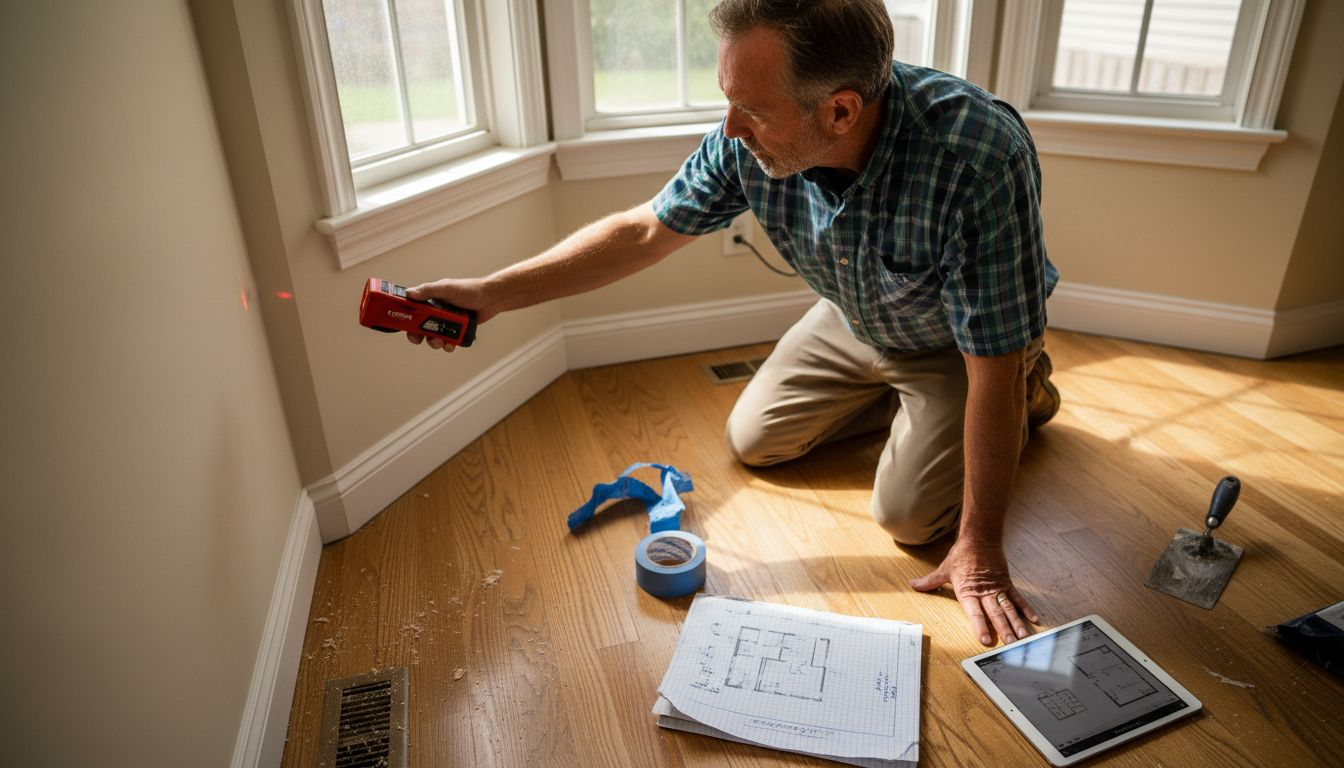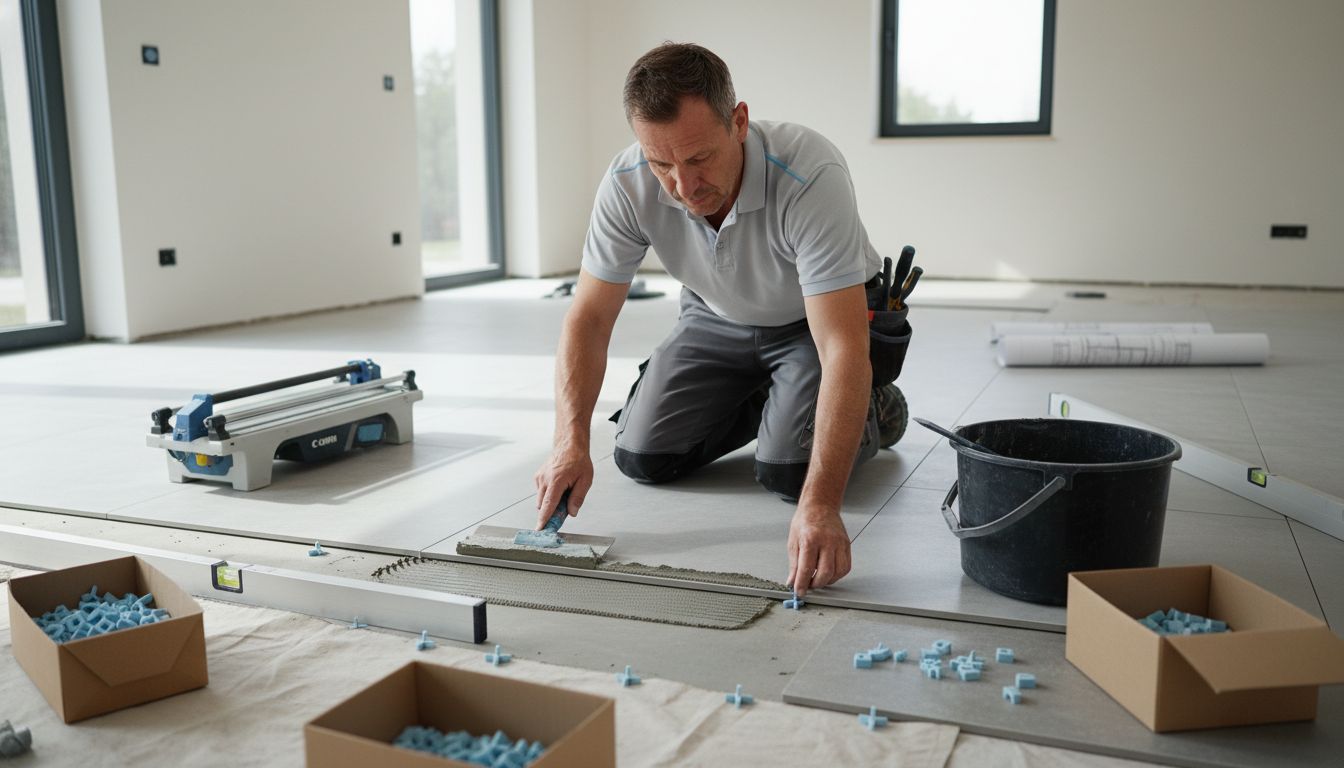Epoxy grout is changing the way people think about tile projects. Most folks expect regular grout to crack, fade, or stain over time, but epoxy grout flips the script. It can reach nearly 80 percent of its final strength in just 24 hours, and stays spotless even in places where regular grout fails. That kind of power means your next renovation could last a whole lot longer than you ever imagined.
Table of Contents
- What Is Epoxy Grout And How Is It Different From Traditional Grout?
- Why Choosing Epoxy Grout Matters For Your Home And Projects
- The Science Behind Epoxy Grout: How It Works And What Makes It Strong
- Key Benefits Of Using Epoxy Grout In Various Applications
- Real-World Applications And Considerations For Epoxy Grout Use
Quick Summary
| Takeaway | Explanation |
|---|---|
| Epoxy grout is non-porous and durable. | Unlike traditional cement grouts, epoxy grout resists moisture and stains, making it suitable for high-use areas. |
| It offers superior chemical resistance. | Epoxy grout withstands harsh cleaning agents and prevents discoloration, ideal for kitchens and bathrooms. |
| Higher initial cost equals long-term savings. | Though epoxy grout costs more upfront, reduced maintenance needs lead to overall savings. |
| Professional installation is recommended. | Specialized application techniques are required for epoxy grout to ensure optimal performance and durability. |
| It is versatile for various environments. | Epoxy grout is suitable for residential, industrial, and commercial applications requiring hygiene and durability. |
What is Epoxy Grout and How is it Different from Traditional Grout?
Epoxy grout represents a revolutionary material in tile installation and renovation, offering significant advantages over traditional cement-based grouts. Unlike conventional grout, epoxy grout is a specialized compound composed of epoxy resins, hardeners, and fillers that create an extremely durable and versatile joint solution for tile surfaces.
Composition and Unique Properties
At its core, epoxy grout differs fundamentally from traditional cement grouts through its advanced chemical composition. While cement grouts are mineral-based and porous, epoxy grouts are synthetic, non-porous, and engineered for superior performance. According to research from the National Tile Contractors Association, epoxy grouts provide exceptional resistance to stains, chemicals, and moisture, making them ideal for demanding environments like commercial kitchens, bathrooms, and high-traffic areas.
Key characteristics of epoxy grout include:
- Completely non-porous surface preventing liquid absorption
- Outstanding chemical and stain resistance
- Superior durability and longevity compared to traditional grouts
- Maintains color stability over extended periods
- Minimal maintenance requirements
Performance and Application Advantages
The performance profile of epoxy grout sets it apart from traditional grouting materials. Its unique molecular structure allows for enhanced flexibility and strength, which translates into better joint integrity and longer-lasting tile installations. Epoxy grout exhibits remarkable ductile behavior, meaning it can withstand more stress and movement without cracking or chipping.
While epoxy grout offers substantial benefits, it also requires specialized application techniques. Professional installers must carefully mix components and apply the grout under specific conditions to achieve optimal results. The material’s advanced properties come with a higher initial cost but provide significant long-term value through reduced maintenance and replacement needs.
Understanding the distinctive attributes of epoxy grout empowers homeowners and contractors to make informed decisions about tile installation, ensuring both aesthetic appeal and functional performance in renovation projects.
To help clarify the differences between epoxy grout and traditional cement-based grout, the following table summarizes their key characteristics side by side.
| Feature | Epoxy Grout | Traditional Grout |
|---|---|---|
| Composition | Epoxy resins, hardeners, and fillers | Cement, sand, pigment |
| Porosity | Non-porous | Porous |
| Stain Resistance | High | Moderate to low |
| Chemical Resistance | Excellent | Poor to moderate |
| Color Stability | Maintains color over time | May fade or discolor |
| Maintenance Requirements | Minimal | Regular cleaning/sealing needed |
| Application Difficulty | Requires professional installation | Can be DIY |
| Initial Cost | Higher | Lower |
| Ideal Environments | High-moisture, high-traffic, commercial | Residential, low-traffic |
Why Choosing Epoxy Grout Matters for Your Home and Projects
Choosing the right grout is more than a minor detail in home renovation projects. It represents a critical decision that impacts the long-term durability, aesthetic appeal, and maintenance requirements of your tiled surfaces. Epoxy grout emerges as a superior solution that addresses many common challenges faced by homeowners and professional contractors.
Long-Term Performance and Protection
Epoxy grout provides unparalleled protection for your home environments. According to research from the University of Tennessee, its unique composition offers significant advantages in areas prone to moisture and staining. Unlike traditional grouts, epoxy grout creates a robust barrier that protects your investment from potential damage.
Key benefits of choosing epoxy grout include:
- Exceptional resistance to water penetration
- Prevention of bacterial and mold growth
- Elimination of grout discoloration and staining
- Superior protection in high-moisture areas
- Extended lifespan of tiled surfaces
Cost-Effectiveness and Maintenance Considerations
While epoxy grout requires a higher initial investment, its long-term value becomes evident through reduced maintenance and replacement costs. Homeowners can save significant money by choosing a material that resists degradation and maintains its appearance over time. The minimal maintenance requirements translate to less frequent repairs and cleaning, making it an economically smart choice for residential and commercial spaces.
Professional installers recognize that epoxy grout represents a premium solution for clients seeking durable and aesthetically pleasing tile installations. Its ability to withstand harsh cleaning chemicals, resist staining, and maintain color stability makes it an ideal choice for kitchens, bathrooms, and other high-traffic areas where traditional grouts would quickly deteriorate.

Ultimately, selecting epoxy grout is an investment in the quality and longevity of your home improvement projects, providing peace of mind and superior performance that extends far beyond traditional grouting solutions.
The Science Behind Epoxy Grout: How It Works and What Makes It Strong
Epoxy grout represents an advanced material engineered through complex chemical interactions that transform its fundamental properties. Unlike traditional grouting materials, epoxy grout leverages sophisticated molecular design to create an extraordinary performance profile that surpasses conventional construction solutions.
Molecular Composition and Chemical Bonding
At its core, epoxy grout is a two-component system consisting of epoxy resin and a hardening agent. These components undergo a sophisticated chemical reaction called polymerization, which creates an incredibly strong and interconnected molecular network. According to research from the Federal Highway Administration, this process enables epoxy grout to achieve approximately 80% of its ultimate strength within just 24 hours, making it substantially faster and more robust than traditional cement-based alternatives.
Key molecular characteristics include:
- Highly cross-linked polymer structure
- Strong intermolecular bonds
- Resistance to chemical degradation
- Exceptional dimensional stability
- Enhanced mechanical performance
Mechanical Properties and Structural Integrity
The unique molecular architecture of epoxy grout translates directly into remarkable mechanical properties. Its polymerized structure creates a dense, uniform material with exceptional compressive and tensile strength. The molecular network allows for superior stress distribution, which means the material can absorb and redistribute mechanical loads more effectively than traditional grouts.
Professional engineers appreciate epoxy grout’s ability to maintain structural integrity under challenging conditions. Its molecular design provides remarkable resistance to environmental stressors such as temperature fluctuations, moisture exposure, and chemical interactions. This makes epoxy grout an ideal solution for applications requiring long-term durability and consistent performance.
Understanding the scientific principles behind epoxy grout reveals why it represents a quantum leap in construction materials. By harnessing advanced chemical engineering, manufacturers have created a grouting solution that offers unprecedented strength, durability, and reliability for modern renovation and construction projects.

Key Benefits of Using Epoxy Grout in Various Applications
Epoxy grout transcends traditional grouting solutions by offering a comprehensive range of benefits that address multiple challenges in residential, commercial, and industrial settings. Its advanced material properties make it a versatile and high-performance solution for diverse tile and surface applications.
Enhanced Durability and Performance
The exceptional durability of epoxy grout sets it apart from conventional grouting materials. According to research from the National Institutes of Health, its unique composition provides remarkable resistance to water absorption and chemical degradation. This translates into superior performance in environments that demand consistent quality and long-term reliability.
Key performance advantages include:
- Extreme resistance to staining and discoloration
- Exceptional chemical and moisture resistance
- Minimal porosity preventing bacterial growth
- Enhanced mechanical strength
- Consistent aesthetic appearance over time
Versatile Application Across Different Environments
Epoxy grout demonstrates remarkable adaptability across various settings, from residential bathrooms to industrial food preparation areas. Its non-porous nature makes it particularly valuable in environments requiring strict hygiene standards. Professional designers and contractors appreciate its ability to maintain structural integrity and appearance in challenging conditions such as high-moisture areas, chemical exposure zones, and spaces with frequent temperature fluctuations.
The material’s versatility extends to multiple application scenarios, including:
- Commercial kitchen installations
- Hospital and healthcare facility tiling
- Swimming pool and spa environments
- Laboratory and research facility surfaces
- High-traffic commercial and residential spaces
By selecting epoxy grout, professionals and homeowners invest in a solution that delivers unparalleled performance, longevity, and aesthetic consistency. Its advanced material science represents a significant improvement over traditional grouting methods, providing a robust, low-maintenance option for modern tile installations across diverse contexts.
Real-World Applications and Considerations for Epoxy Grout Use
Epoxy grout represents a sophisticated solution with extensive practical applications across multiple industries and renovation scenarios. Understanding its real-world implementation requires careful consideration of performance characteristics, installation requirements, and potential limitations.
Strategic Industrial and Commercial Applications
Engineering professionals recognize epoxy grout as a critical material for complex infrastructure and specialized environments. According to research from the Federal Highway Administration, its exceptional compressive strength and rapid development make it particularly valuable in construction and infrastructure projects requiring quick turnaround times and robust performance.
Key strategic applications include:
- Bridge deck and structural repair projects
- Precision equipment mounting
- Industrial flooring installations
- Seismic retrofitting of buildings
- Critical infrastructure rehabilitation
Professional Installation and Technical Considerations
Successful epoxy grout implementation demands meticulous preparation and expert application. Professional installers must understand the material’s unique curing characteristics, temperature sensitivities, and mixing requirements. The complex chemical composition means that slight variations in environmental conditions or mixing ratios can significantly impact the final performance.
Critical installation considerations involve:
- Precise environmental temperature control
- Accurate component mixing ratios
- Proper surface preparation techniques
- Understanding potential thermal expansion characteristics
- Implementing appropriate curing procedures
While epoxy grout offers remarkable advantages, professionals must carefully evaluate each specific application. Its higher initial cost and specialized installation requirements mean that thorough project assessment becomes essential. Successful implementation demands comprehensive understanding of the material’s properties, potential challenges, and precise application techniques.
Upgrade Your Renovation with Epoxy Grout and Premium Tiles
Are you tired of grout that cracks, stains, or invites mold after just a few years? The article explains how epoxy grout can transform the future of your tile renovation with durability and almost no maintenance. Yet, it is only part of the solution. Choosing the right tile is just as important for a lasting and beautiful result. At TileChoices.com, you will find high-quality tiles that perfectly complement the power of epoxy grout. Our curated tile collections are tested to work seamlessly with advanced grout solutions, ensuring your new space shines for years to come.
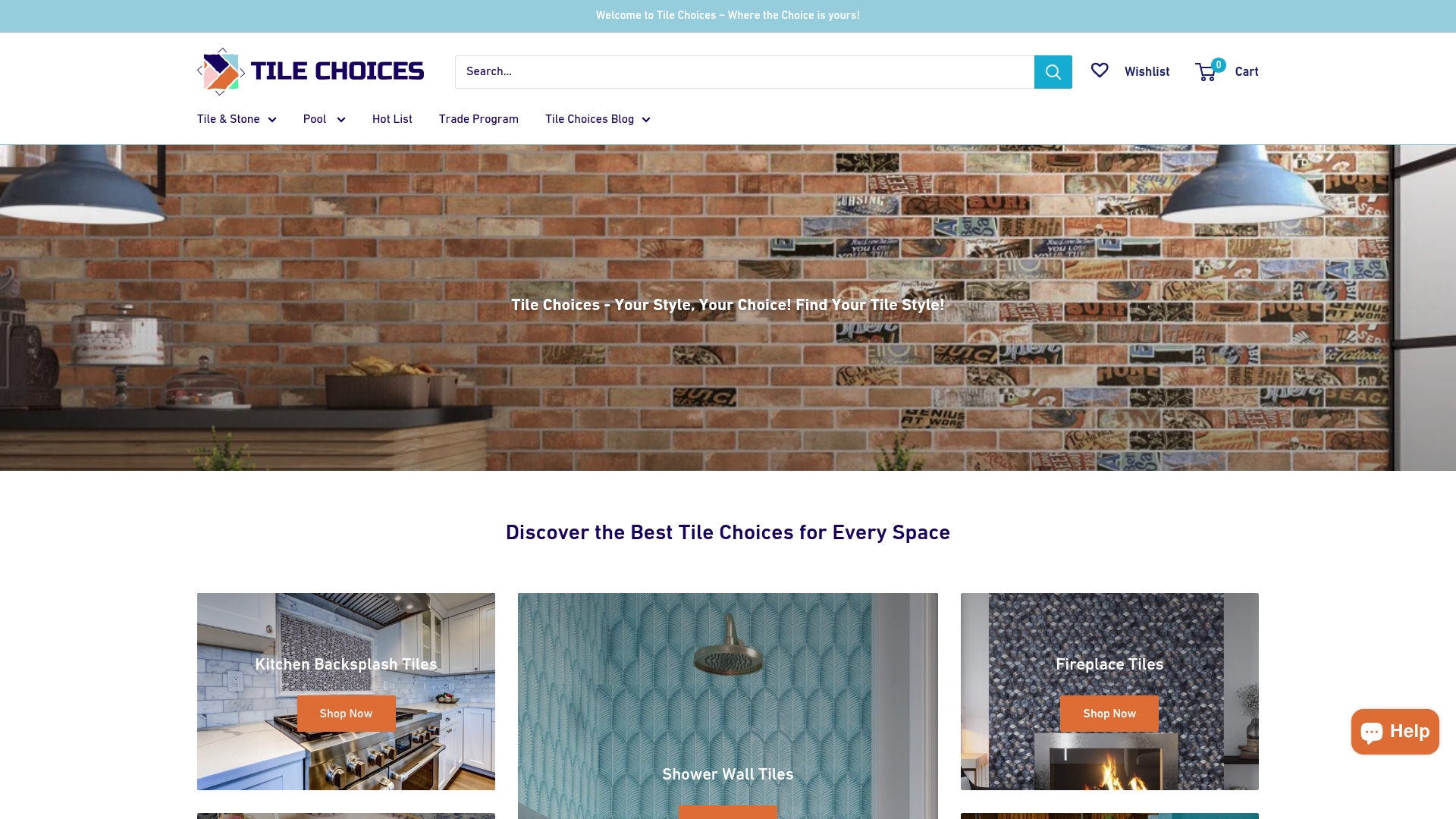
Do not settle for temporary fixes when you can enjoy the benefits of epoxy grout paired with top-tier tile options. Visit TileChoices.com now to browse our wide range of durable, stylish tiles for kitchens, bathrooms, and every other space you are ready to renew. Discover tile samples, expert advice, and inspiration tailored to your next renovation. Take the next step toward a cleaner, stronger, and more beautiful home today.
Frequently Asked Questions
What is epoxy grout, and how does it differ from traditional grout?
Epoxy grout is a specialized compound made from epoxy resins, hardeners, and fillers that creates a durable and non-porous joint solution for tile surfaces. Unlike traditional cement-based grouts, which are porous and mineral-based, epoxy grouts offer superior resistance to stains, chemicals, and moisture.
What are the key advantages of using epoxy grout in renovation projects?
Epoxy grout offers numerous benefits, including exceptional resistance to water penetration, minimal staining and discoloration, superior durability, and a longer lifespan in high-moisture areas. Additionally, it requires less maintenance over time compared to traditional grouts.
Is epoxy grout more expensive than traditional grout?
Yes, epoxy grout typically comes with a higher initial cost than traditional cement-based grouts. However, its long-term value becomes apparent through reduced maintenance and replacement costs, making it a cost-effective choice in the long run.
What types of environments are best suited for epoxy grout?
Epoxy grout is ideal for high-moisture areas such as bathrooms and kitchens, as well as commercial settings like restaurants and healthcare facilities. Its non-porous nature makes it suitable for any environment requiring hygienic conditions and durability against stains and chemicals.
Recommended
-
UPB-2101 Parasol Tile - Stylish 2" Hex from Uptown Beach Series – Tile Choices
-
Aragon Hills AGH-5414 Python Haze Mosaic | Elegant Recycled Glass Tile – Tile Choices
-
Choosing the Checkerboard Tile Size That Transforms Your Space – Tile Choices
-
Nebula 3D Porcelain Mosaic Tile NEB-6263 Vardian – Tile Choices


